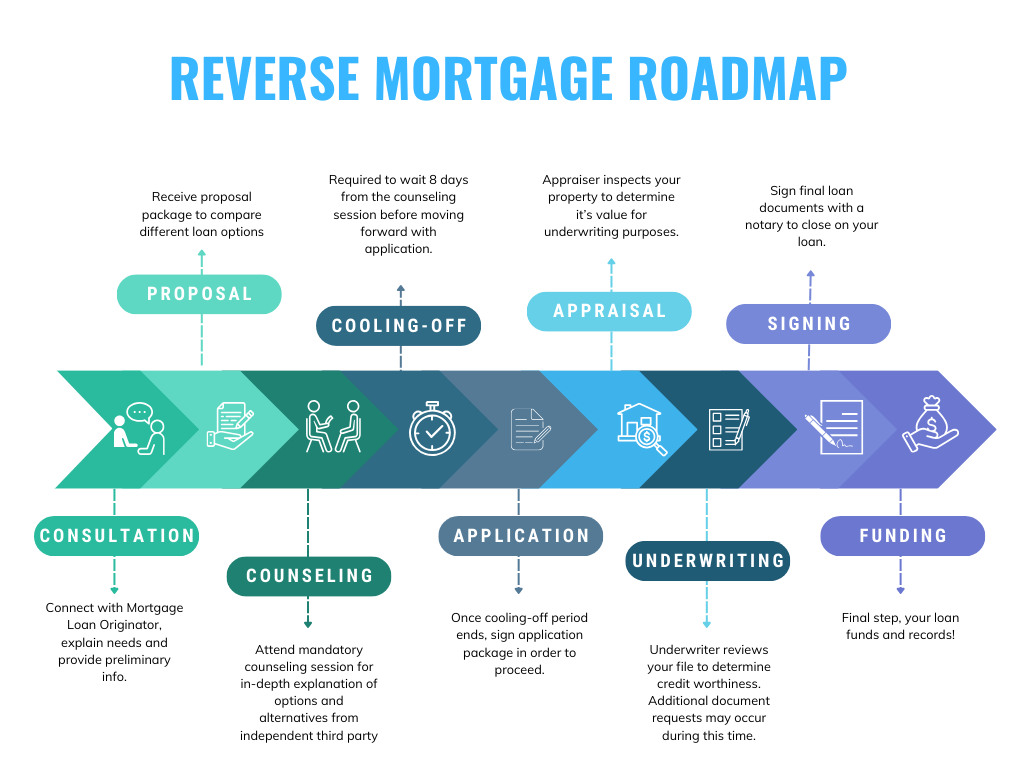Why You Should Purchase Reverse Mortgage to Secure Your Future
Why You Should Purchase Reverse Mortgage to Secure Your Future
Blog Article
Empower Your Retirement: The Smart Way to Acquisition a Reverse Mortgage
As retired life approaches, lots of people seek reliable strategies to improve their monetary freedom and health. Among these methods, a reverse home mortgage emerges as a practical choice for homeowners aged 62 and older, enabling them to touch right into their home equity without the need of month-to-month repayments.
Recognizing Reverse Mortgages
Understanding reverse mortgages can be essential for property owners looking for monetary versatility in retired life. A reverse home loan is an economic product that allows eligible homeowners, generally aged 62 and older, to convert a section of their home equity into money. Unlike standard home mortgages, where debtors make month-to-month settlements to a lending institution, reverse home mortgages make it possible for house owners to obtain settlements or a swelling amount while maintaining ownership of their building.
The quantity offered with a reverse mortgage depends on several aspects, consisting of the house owner's age, the home's worth, and present interest prices. Notably, the finance does not need to be paid back up until the property owner sells the home, leaves, or passes away.
It is important for potential customers to recognize the ramifications of this financial item, including the influence on estate inheritance, tax considerations, and recurring obligations connected to home maintenance, tax obligations, and insurance coverage. Additionally, counseling sessions with licensed experts are commonly needed to make sure that customers totally understand the conditions of the financing. Generally, an extensive understanding of reverse mortgages can empower homeowners to make educated choices about their monetary future in retirement.
Advantages of a Reverse Home Mortgage
A reverse home loan supplies several compelling benefits for eligible homeowners, especially those in retired life. This economic device permits seniors to convert a part of their home equity right into money, giving important funds without the requirement for month-to-month mortgage payments. The cash obtained can be made use of for various functions, such as covering clinical costs, making home renovations, or supplementing retirement income, therefore improving general financial flexibility.
One considerable advantage of a reverse home loan is that it does not call for repayment up until the house owner leaves, markets the home, or dies - purchase reverse mortgage. This feature allows retired people to keep their way of living and fulfill unanticipated costs without the concern of regular monthly repayments. Furthermore, the funds gotten are commonly tax-free, allowing homeowners to use their cash money without anxiety of tax ramifications
Moreover, a reverse home loan can offer assurance, recognizing that it can act as an economic safeguard during challenging times. Homeowners also retain possession of their homes, guaranteeing they can continue living in an acquainted environment. Ultimately, a reverse home mortgage can be a calculated monetary source, equipping retired people to manage their funds successfully while enjoying their golden years.
The Application Refine
Browsing the application process for a reverse home mortgage is a crucial step for property owners considering this financial alternative. The initial stage includes evaluating qualification, which generally needs the property owner to be a minimum of 62 years of ages, own the home outright or have a low home loan balance, and inhabit the home as their main house.
When qualification is validated, house owners must go through a counseling session with a HUD-approved therapist. This session ensures that they completely understand the ramifications of a reverse mortgage, including the responsibilities entailed. purchase reverse mortgage. After completing therapy, applicants can proceed to collect necessary documents, including evidence of revenue, possessions, and the home's worth
The next action requires submitting an application to a loan provider, that will examine the financial and residential property qualifications. An evaluation of the home will certainly likewise be conducted to identify its market price. If accepted, the lender will offer car loan try this website terms, which need anchor to be reviewed thoroughly.
Upon approval, the closing process complies with, where last records are authorized, and funds are disbursed. Understanding each stage of this application procedure can significantly enhance the property owner's self-confidence and decision-making relating to reverse home mortgages.

Secret Factors To Consider Before Getting
Acquiring a reverse home loan is a significant economic decision that calls for careful consideration of several crucial aspects. Assessing your monetary requirements and goals is similarly crucial; identify whether a reverse mortgage straightens with your long-lasting plans.

A reverse home mortgage can affect your qualification for particular federal government advantages, such as Medicaid. By extensively evaluating these factors to consider, you can make a much more informed choice about whether a reverse home loan is the ideal financial method for your retirement.
Maximizing Your Funds
When you have actually secured a reverse home mortgage, properly handling the funds ends up being a top priority. The versatility of a reverse mortgage enables home owners to make use of the funds in various ways, however strategic preparation is vital to optimize their advantages.
One essential strategy is to produce a budget plan that outlines your regular monthly expenditures and financial objectives. By determining needed costs such as healthcare, residential property tax obligations, and home upkeep, you can designate funds as necessary to guarantee long-term sustainability. In addition, think about making use of a portion of the funds for financial investments that can create revenue visite site or value in time, such as dividend-paying supplies or shared funds.
Another important facet is to maintain a reserve. Alloting a book from your reverse home loan can assist cover unforeseen costs, giving tranquility of mind and monetary stability. Consult with a financial advisor to discover feasible tax obligation implications and exactly how to incorporate reverse home loan funds right into your total retirement approach.
Eventually, sensible monitoring of reverse home mortgage funds can improve your financial safety and security, allowing you to enjoy your retirement years without the anxiety of economic uncertainty. Cautious preparation and notified decision-making will certainly guarantee that your funds function efficiently for you.
Final Thought
In conclusion, a reverse home loan provides a practical monetary technique for elders looking for to boost their retired life experience. By converting home equity into easily accessible funds, people can deal with important expenditures and safe added financial resources without incurring regular monthly repayments.
Understanding reverse home mortgages can be important for homeowners looking for financial adaptability in retirement. A reverse home loan is a monetary product that permits qualified homeowners, commonly aged 62 and older, to convert a section of their home equity into money. Unlike typical home loans, where borrowers make regular monthly settlements to a lender, reverse home loans make it possible for house owners to receive repayments or a swelling amount while retaining ownership of their property.
On the whole, a detailed understanding of reverse mortgages can empower property owners to make informed choices concerning their economic future in retired life.
Seek advice from with an economic expert to discover feasible tax obligation effects and exactly how to integrate reverse home loan funds into your general retirement method.
Report this page